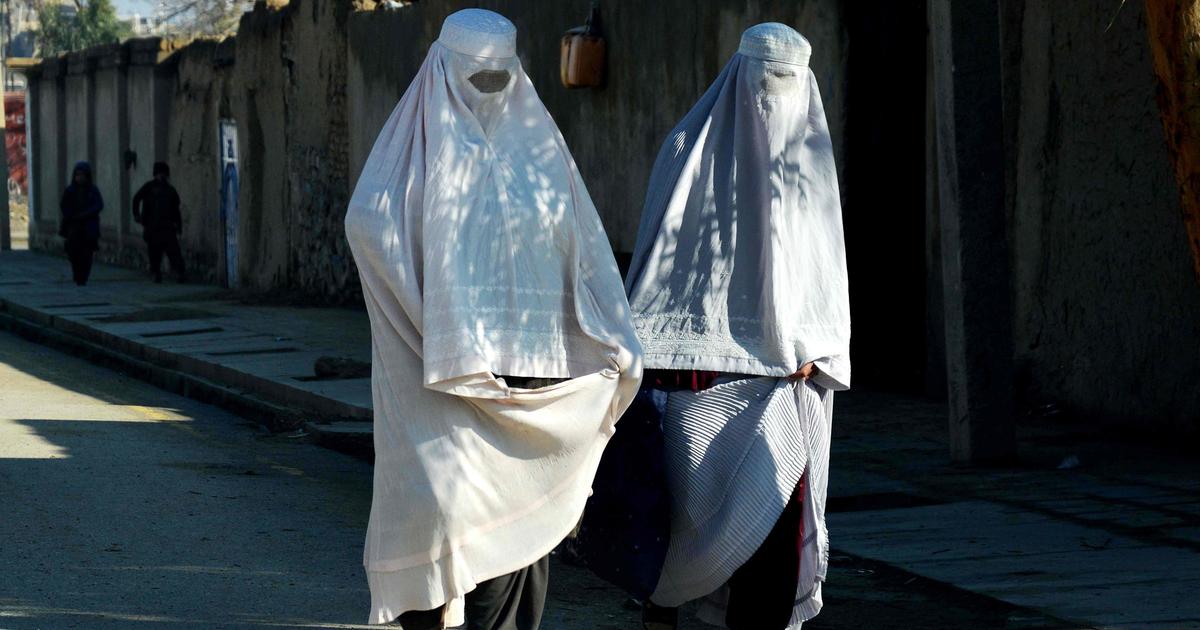Three major foreign NGOs announced this Sunday the suspension of their activities in Afghanistan due to the decision of the Taliban, which became known on Saturday, to prohibit women from working for NGOs, local and international, considered vital to the country, whose serious The human crisis has worsened since the Taliban regained power on August 15, 2021. In a joint statement, Save the Children, the Norwegian Refugee Council (NRC) and CARE International announced that they are leaving the air their humanitarian projects until the Taliban's announcement is “cleared up”.
“We suspend our programs, demanding that men and women be allowed to continue helping save lives in Afghanistan,” the three organizations stated: “We cannot effectively reach children, women and men who desperately need help without our female staff,” highlights an NRC tweet.
A Taliban ban on NGOs employing women has forced NRC and other humanitarian organizations to suspend services across #Afghanistan.
We cannot effectively reach children, women and men in desperate need without our female staff.
https://t.co/sWhBVU4rDc
— NRC (@NRC_Norway) December 25, 2022
On Sunday, senior UN officials and dozens of NGOs operating in Afghanistan debated the way forward after the Taliban ordered them to stop working with women.
The order to the NGOs to prohibit their employees from continuing to carry out their tasks was contained in a letter from the Ministry of Economy, confirmed by its spokesman, Abdulrahman Habib.
The Ministry threatened not to renew their permits to work in the country if they did not comply with the directive.
The text justified the measure by alluding to "serious complaints" that the humanitarian workers had not respected the rigid Islamic dress code that the Taliban intends to impose and that obliges women to cover their entire bodies, including their faces.
The letter did not specify whether this order affected foreign expatriates who work for NGOs.
Neither did this directive extend to female staff of the United Nations agencies present in the country.
It is not yet clear how this ban will affect these agencies, which have a large presence in Afghanistan and whose assistance is considered essential to guarantee the survival of millions of Afghans mired in a serious human crisis.
When the spokesman was asked if this ban included UN agencies, Habib said the letter applied to organizations that report to the coordinating body for humanitarian organizations, known as ACBAR.
This entity does not include United Nations agencies, but more than 180 local and international NGOs.
The UN, however,
“The ban will have an impact on all aspects of humanitarian work, as women are central to humanitarian work, with female employees occupying key positions in projects targeting the country’s vulnerable female population,” a senior official from a company said on Sunday. foreign NGO.
Millions of Afghans depend on humanitarian aid provided by international donors through a vast network of NGOs.
In a statement, the UN reminded the Afghan authorities that by marginalizing women "systematically excluded from all aspects of public and political life", they are "setting the country back by undermining efforts to bring peace and significant stability.
In recent months, the siege on women has tightened.
The Taliban, who returned to power in August 2021, prohibited them less than a week ago from continuing to study at public and private universities, citing the same reason: the dress code, which the students allegedly violated, according to their version.
This decision bars Afghans from higher education, after the Taliban deprived adolescent girls of completing their secondary education by closing women's institutes.
With the ban on the higher cycle, all Afghan students over the age of 12 are deprived of education.
The announcement not only plunged many young Afghan women into despair, who appeared in tears in videos posted on social media, but it sparked a new wave of international condemnation.
The right to study is not the only one that the Taliban have taken away from Afghans since they came to power that they had already held between 1996 and 2001. They have also been excluded from numerous public jobs.
Afghans cannot travel without being accompanied by a close male relative and have been ordered to cover themselves outside the home, ideally with a burqa.
They are also not allowed to enter Kabul's parks and gardens.
The regional director of Unicef, George Laryea-Adjei, condemned this Sunday the latest decree of the Taliban, which he defined as "the latest flagrant regression of the rights of girls and women, which will have far-reaching consequences for the provision of services health, nutrition and education to children," he tweeted.
UNICEF strongly condemns the Taliban decree banning female humanitarian workers at NGOs in #Afghanistan from work.
This latest egregious rollback of rights for girls & women will have sweeping consequences on the provision of health, nutrition & education services for children.
— George Laryea-Adjei (@G_LaryeaAdjei) December 25, 2022
Dozens of humanitarian organizations work in remote areas of Afghanistan and many of their employees are women.
“In my family we are 15 and I am the only breadwinner for the family.
If I lose my job, my family will starve,” says Shabana, 24, an NGO worker in Kabul.
Another 27-year-old Afghan woman, who did not wish to give her name for fear of reprisals from the Taliban, and who was due to start work this Sunday, said, "The hard work I have done over the last few years in the field of education has has been shattered, but we are brave enough not to accept the bans, and fight for our rights.
It may take time, but if we believe in ourselves, we will come back stronger than ever,” she stated.
In large parts of Afghanistan, cultural practices prohibit a man from speaking to, examining or offering humanitarian assistance to women who are not close relatives.
These practices, aggravated by the strict separation of the sexes that the Taliban have enforced, prohibit, for example, a male doctor from attending to a woman in childbirth, even if the life of the woman in labor or that of the baby is in danger.
In fact, the shortage of toilets in Afghanistan continues to be, according to various international studies, one of the barriers that prevents the reduction of maternal mortality.
Many of the Afghans who worked in healthcare are employed by these NGOs, which play a crucial role in the Afghan healthcare system and in other areas, such as education.
In September 2021, less than a month after the Taliban retook power, Filipe Ribeiro, then a representative of Doctors Without Borders (MSF) in Afghanistan, assured this newspaper that the Taliban had guaranteed his organization that his workers would not have problems.
According to the United Nations and aid agencies, more than half of Afghanistan's 38 million people live in poverty, a situation made worse by the harsh Afghan winter.
Follow all the international information on
and
, or in
our weekly newsletter
.

/cloudfront-eu-central-1.images.arcpublishing.com/prisa/4T6DCA6OR4Z4PBJQWDDN5QI6FQ.jpg)



/cloudfront-eu-central-1.images.arcpublishing.com/prisa/PAQIS6D7CZEUHHCO4FXIMU3CY4.jpg)

